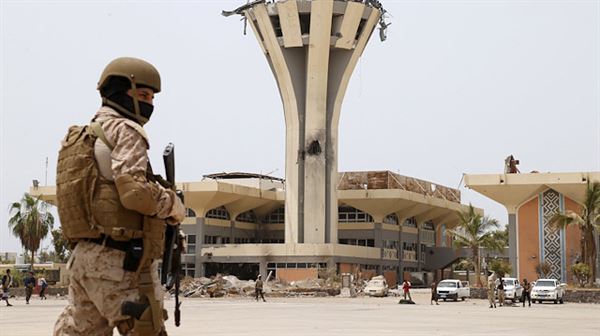Saudi Arabian forces have taken over control of Yemen's southern port of Aden as part of efforts to end a power struggle between the Saudi-backed Yeme
Saudi Arabian forces have taken over control of Yemen’s southern port of Aden as part of efforts to end a power struggle between the Saudi-backed Yemeni government and southern separatists, four sources familiar with the matter said.
Last week the United Arab Emirates, Riyadh’s main partner in a Saudi-led coalition battling Yemen’s Houthi group, started withdrawing troops from Aden, seemingly to pave the way for a deal to end the local standoff.
The UAE-backed separatists are part of the Sunni Muslim coalition that intervened in Yemen in March 2015 to try to restore the government of President Abd-Rabbu Mansour Hadi, which was ousted from the capital, Sanaa, in 2014 by the Houthis, who are aligned with Iran.
The Yemen conflict is largely seen in the region as a proxy war between Saudi Arabia and Iran. The Houthis deny being puppets of Tehran and say they are fighting a corrupt system.
In August, the separatist Southern Transitional Council (STC), which seeks self-rule in the south, turned on Hadi’s government and seized its interim base of Aden, sparking wider clashes that opened a new front in the war.
Saudi Arabia has in the past week deployed more forces to replace Emirati troops at Aden airport and military bases in the city, two Yemeni officials told Reuters.
An official handover to a Saudi commander took place last week under which he would oversee security in the city and its suburbs, two other sources familiar with the matter said.
The coalition spokesman and the Emirati government did not immediately respond to a request for comment.
Saudi Arabia has been hosting indirect talks for a month between Hadi’s government and separatist leaders. Sources had said the two sides were close to agreeing a Saudi proposal to give the STC seats in the cabinet and place separatist forces under government command.
Hadi’s government has asked the UAE to stop arming and training separatist forces while the UAE has said Hadi’s government is ineffective and distrusts Islamists with whom he is allied.
Saudi Arabia may have decided to unify the forces behind Hadi before responding to an offer by the Houthis to stop aiming missiles and drones at Saudi Arabia if the coalition halts air strikes on Yemen.
Iran, which Saudi Arabia blames for an attack on its oil facilities claimed by the Houthis, has said it views the Houthi offer “positively”.
Progress on both tracks would boost United Nations efforts to restart peace talks. The war has killed tens of thousands and pushed millions to the brink of famine.
The UAE was already scaling down its presence in Yemen as Western allies, some of which provide the coalition with arms and intelligence, pressed for an end to the war, and as tension with Iran grew.
